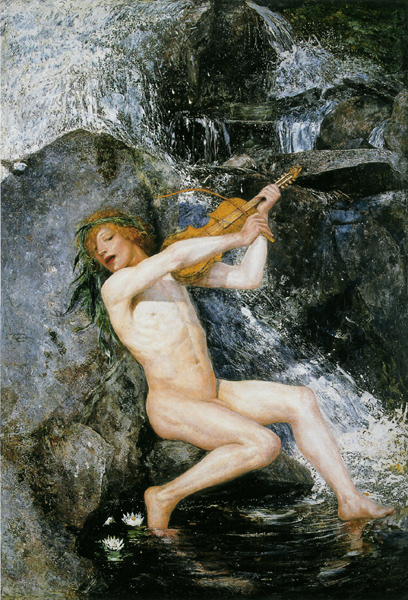SFFP, Department of
Philosophy, Göteborg University, Box 200, SE-405 30 Göteborg,
Sweden.
Programme
Saturday,
November 15th
1100 - 1200 Registration
1215 - 1230 Opening speech:
Helge Malmgren (Department of Philosophy, Göteborg University,
Sweden)
Session 1. Phenomenology and Psychiatry:
Historical Aspects
1230 - 1255 Bengt-Arne Roos
(Psychiatrical Clinic, University Hospital, Lund University, Sweden
Karl Jaspers and the Return of Phenomenology
1255 - 1320 Arlette Joli (Michel de
Montaigne College & Charles Perrens Psychiatric Hospital, Bordeaux,
France)
Psychotic Experience and Philosophy: The Turn of
Contemporary Phenomenological Philosophy
1320 - 1405 Coffee
break with sandwich
1405 - 1430 Francois Sauvagnat
(University of Rennes, France)
A Few Consequences of Roman Ingarden’s Phenomenology
to Psychopatological Research, Especially Attachment Theory
1430 - 1525 Keynote speech:
Thomas Fuchs (Psychiatric University Clinic, Heidelberg, Germany)
The Challenge of Neuroscience: Psychiatry and
Phenomenology Today
Session 2. Clinical Phenomenology and
Integrative Perspectives
1525 - 1550 Alfred Kraus
(Psychiatric University Clinic, Heidelberg, Germany)
Schizophrenic Delusion and Hallucination as
Existential Disturbance
1550 - 1615 Nancy Nyquist
Potter (Department of Philosophy, University of Louisville, USA)
What’s Wrong with Being Manipulative?
Phenomenology and Analysis of Manipulativity in Clinical Settings
1615 - 1640 Inger Berndtsson
(Department of Education, Göteborg University, Sweden)
The Onset of Blindness as a Break in Life: A
Life-world Approach
1640 - 1710 Coffee
break
1710 - 1735 Fredrik Svenaeus
(Department of Health and Society, University of Linköping, Sweden)
The Phenomenology versus Pathology of Anxiety
and Boredom
1735 - 1800 Maryellen Leann Dodd
& Daniel A. Drubach (Department of Psychiatry and Psychology; Dept.
of Neurology and Psychiatry, Mayo Clinic, Rochester, USA)
Brain Plasticity and Its Role in Psychiatric
Disorders
Sunday, November 16th
Session 3: Phenomenology and the Body
0900 - 0925 Martin Wyllie
(Aberdeen University, Scotland)
Merleau-Ponty’s ‘Body-Subject’, the Cartesian
Corpse, the Medical Model and Psychiatry
0925 - 0950 Alexandre Billon (CREA,
Paris, France)
What It’s Like to Know How
0950 - 1030 Coffee
break
Session 4: Autonomy, Ethics and Psychiatry
1030 - 1125 Keynote speech:
Sten Levander (Department of Forensic Psychiatry, Lund University,
Sweden)
Actus reus and mens rea: What is an Act? What is
Free Will? What is Moral Responsibility?
1125 - 1150 Ingemar
Engström (Psychiatric Research Centre, Örebro, Sweden)
Coercive Treatment of Children and Adolescents –
Reasons, Rules and Roles
1150 - 1215 Pontus Höglund
(Dept. of Medical Ethics, Lund, Sweden)
Moral Competence and Forensic Psychiatry
1215 - 1240 Niklas Juth
(Department of Philosophy, Göteborg University, Sweden)
Autonomy as a Positive Value – Some Conceptual
Prerequisites
1240 - 1330 Lunch
1330 - 1430 Poster
session (see below)
Session 5: Personality Development and
Autism
1430 - 1455 Henrik
Söderström (Institute of Clinical Neuroscience, Göteborg
University, Sweden)
Awareness of Self and Others in Autism Spectrum
Disorders and in Personality Development
1455 - 1520 Daniel D.
Hutto (University of Hertfordshire, England)
The Narratives of Folk Psychology and the Case
of Autism
1520 - 1600 Coffee break
Session 6: Methodological Issues in
Research and Clinical Practice
1600 - 1625 Karin Dahlberg
&
Helena Dahlberg (Växjö University and Dept. of Philosophy,
Göteborg University, Sweden)
The Art of Understanding Patients as the Art of
not Making Definite what is Indefinite
1625 - 1650 Enric J.
Novella & María Barberá (Servei de Psiquiatria,
Hospital Clínic Universitari,
València, Spain)
Phenomenology and Qualitative Research
1650 - 1715 Gudrun Olsson
(Institute for Communication, Ålborg University, Denmark)
Good Psychotherapeutic Practice from a Narrative
Point of View
1715 - 1800 General
discussion and finishing remarks
Poster Session
Jan Bergström (Psychiatric Centre, Karolinska University Hospital,
Stockholm, Sweden)
The Danger of Words to Psychology – Maurice O’Connor Drury and the
Heritage from Wittgenstein
Bengt Brülde & Filip Radovic (Department of Philosophy,
Göteborg University, Sweden)
The Concept of Mental Disorder
Daniil Dorofeev (Saint-Petersburg State University of
Telecommunications, Russia)
Connections between Existential Phenomenology and Phenomenological
Psychiatry in the Conception ‘Being-in-World’ of L. Binswanger
Johan Eriksson (Subrosa, Haninge, Sweden)
Four Raisons d’Etre of a Hypothetical-Deductive Theory of
Integrating Phenomenology, Psychiatry and Neuroscience
Kent Gustavsson (Department of Philosophy, Göteborg University,
Sweden)
Varieties of the Unconscious
Patrik Kjaersdam Telléus (Center for Philosophy and Theory of
Science,
Aalborg University, Denmark)
A Saint in the City
Helge Malmgren (Department of Philosophy, Göteborg University,
Sweden)
Time Consciousness and the Body Schema
Metod Saniga (Astronomical Institute, Slovak Academy of Sciences,
Slovakia)
and Rosolino Buccheri (Istituto di Astrofisica Spaziale e Fisica
Cosmica
del CNR, Palermo, Italy)
The Psychopathological Fabric of Time: Its Phenomenology and Geometry

